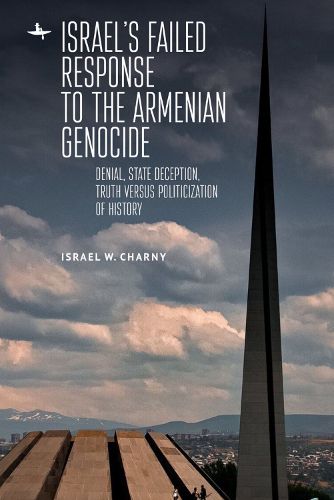Readings Newsletter
Become a Readings Member to make your shopping experience even easier.
Sign in or sign up for free!
You’re not far away from qualifying for FREE standard shipping within Australia
You’ve qualified for FREE standard shipping within Australia
The cart is loading…






When the Turks demanded the cancellation of all lectures on the Armenian Genocide and that Armenian lecturers not be allowed to participate, the Israeli government followed suit, demanding the same of the then forthcoming First International Conference on the Holocaust and Genocide. This book follows the author’s gutsy campaign against the Israeli government and his quest to successfully hold the conference in the face of censorship. A political whodunit based on previously secret Israel Foreign Ministry cables, this book investigates Israel’s overall tragically unjust relationships to genocides of other peoples.
Charny also closely examines Elie Wiesel, who remains a great hero but is seen also as interfering with recognition of other peoples’ genocidal tragedies, and Shimon Peres, who opposed recognition of the Armenian Genocide. Additional chapters by three famous leaders-a Turk (Ragip Zarakolu), an Armenian (Richard Hovannisian), and a Jew (Michael Berenbaum)-provide added perspectives.
$9.00 standard shipping within Australia
FREE standard shipping within Australia for orders over $100.00
Express & International shipping calculated at checkout
When the Turks demanded the cancellation of all lectures on the Armenian Genocide and that Armenian lecturers not be allowed to participate, the Israeli government followed suit, demanding the same of the then forthcoming First International Conference on the Holocaust and Genocide. This book follows the author’s gutsy campaign against the Israeli government and his quest to successfully hold the conference in the face of censorship. A political whodunit based on previously secret Israel Foreign Ministry cables, this book investigates Israel’s overall tragically unjust relationships to genocides of other peoples.
Charny also closely examines Elie Wiesel, who remains a great hero but is seen also as interfering with recognition of other peoples’ genocidal tragedies, and Shimon Peres, who opposed recognition of the Armenian Genocide. Additional chapters by three famous leaders-a Turk (Ragip Zarakolu), an Armenian (Richard Hovannisian), and a Jew (Michael Berenbaum)-provide added perspectives.